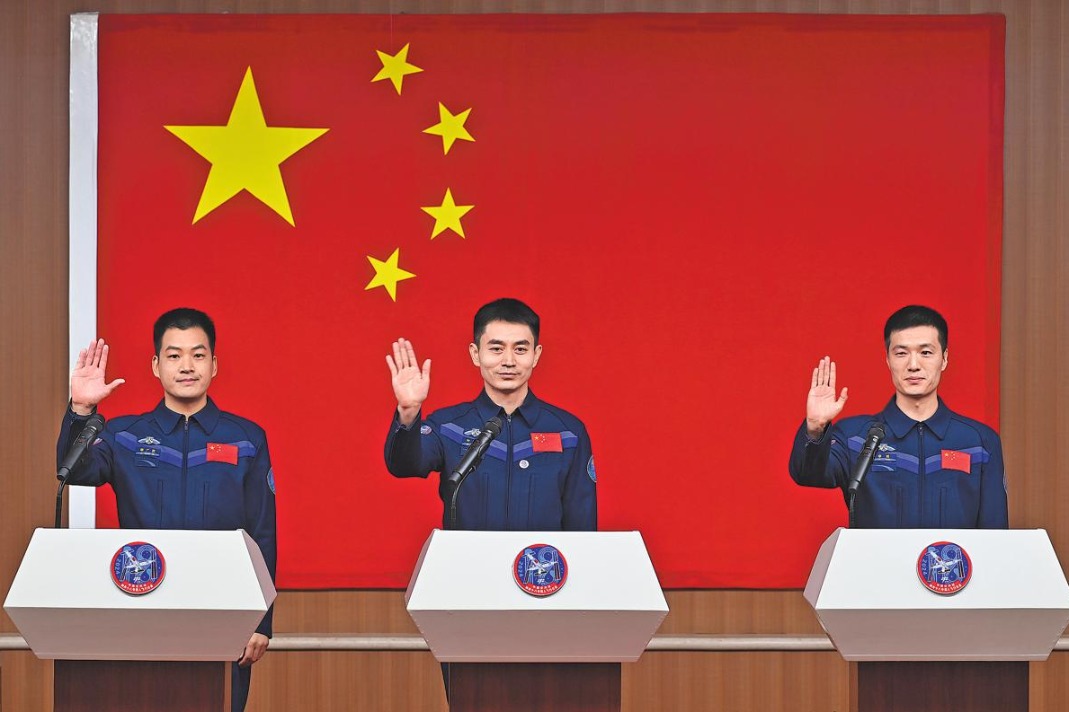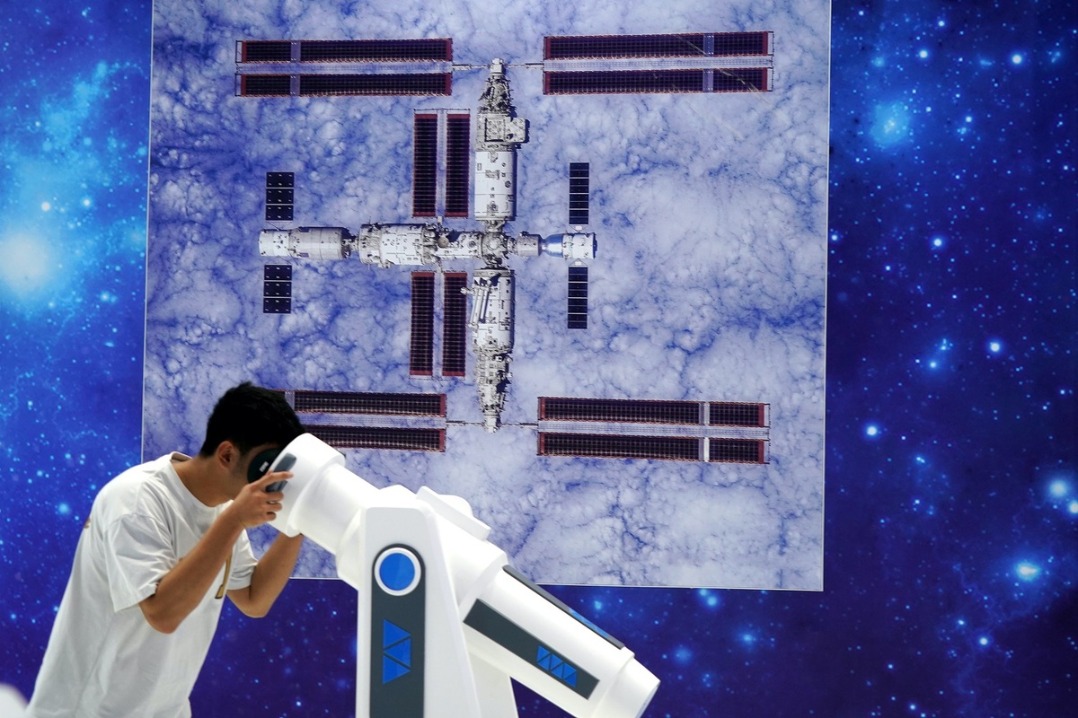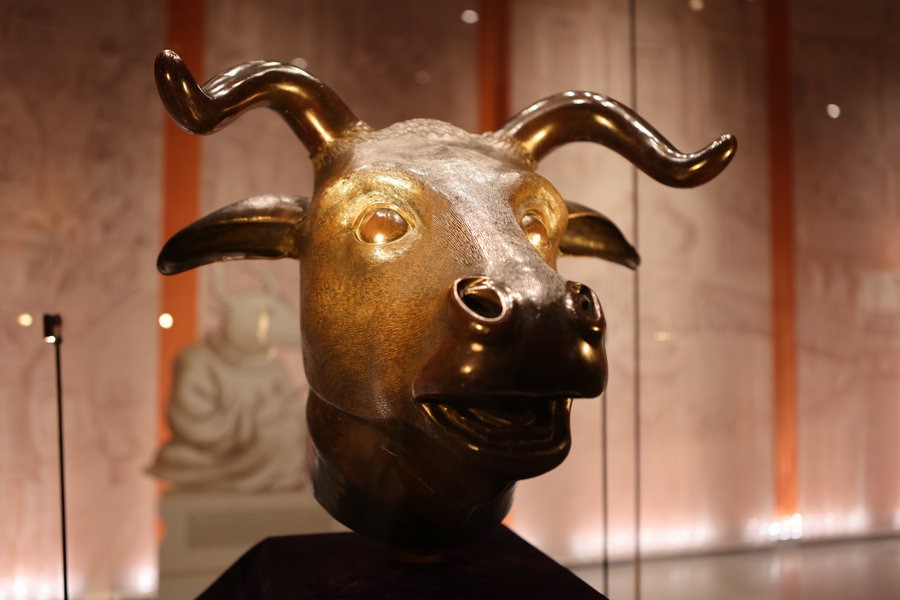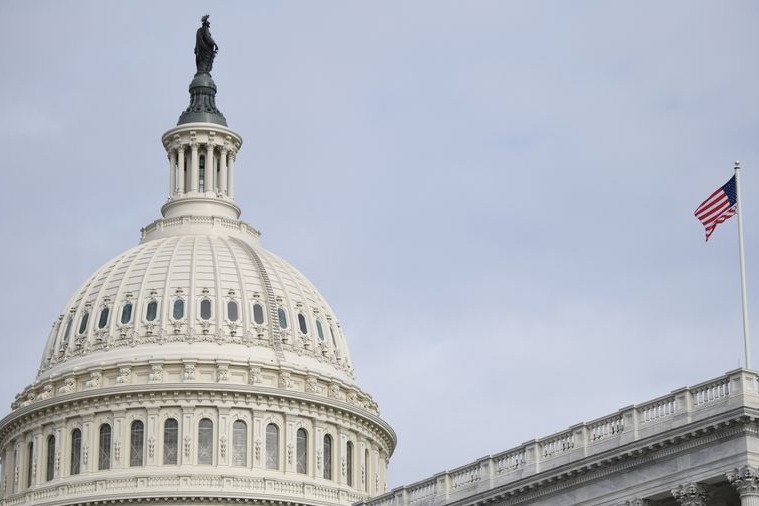No person or force can stop reunification

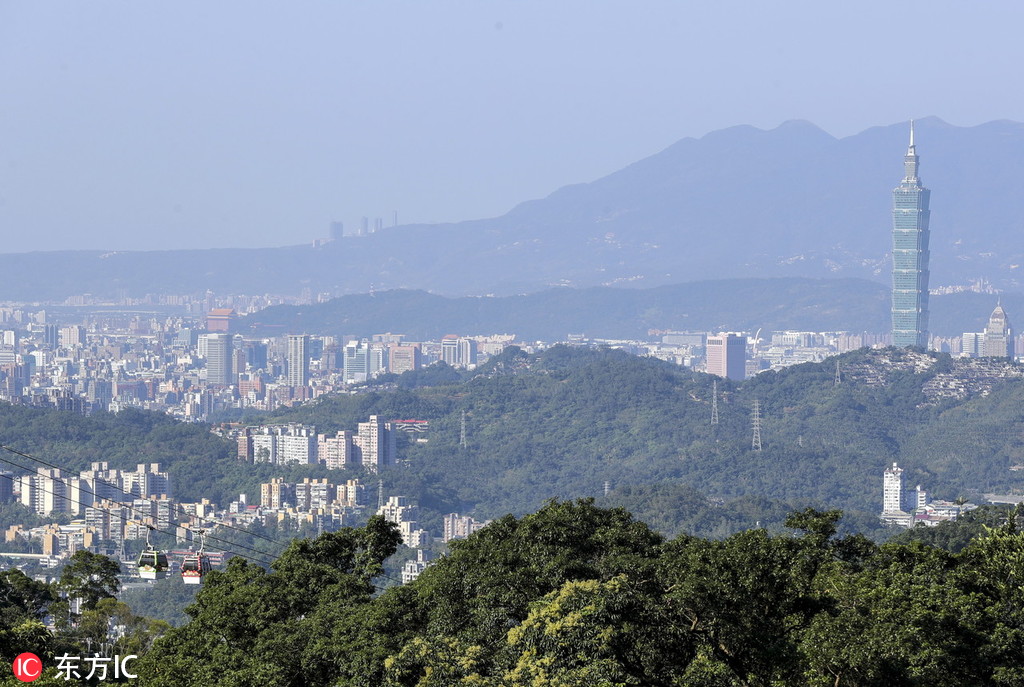
China must be and will be reunited. By asserting this historical truth at a gathering in Beijing on Wednesday to mark the 40th anniversary of the Chinese mainland's Message to Compatriots in Taiwan, President Xi Jinping provided the direction that cross-Straits ties will take in the future and dealt a heavy blow to the proindependent politicians on the island, cautioning them to not reject the fact of national reunification.
Giving expression to his political beliefs and conveying his love for Taiwan compatriots, Xi provided the guideline for reunification and the rejuvenation of the Chinese nation in the new era.
First, for those who use democracy as an excuse to question the reunification process, democratic consultation can be the path for peaceful reunification of the two sides of the Taiwan Straits. As Xi said, on the basis of the common political foundation of upholding the 1992 Consensus and opposing "Taiwan Independence", political parties and all sectors on both sides of the Straits can recommend their representatives to conduct extensive and in-depth democratic consultation and establish institutional arrangement for peaceful development of cross-Straits relations.
However, just a day before Xi delivered his speech on reunification, Taiwan leader Tsai Ing-wen incited Taiwan residents to be on guard against the mainland and to "safeguard democracy". She has again put partisan interests ahead of the nation, indicating that she refuses to learn a lesson from the ruling Democratic Progressive Party's terrible performance in the local elections in November which forced her to resign as the DPP leader.
By contrast, taking into consideration the entire spectrum of the political foundation, exchanges and public opinions across the Straits, Xi's guideline for reunification shows the mainland's sincerity and determination to achieve national reunification in a peaceful and negotiated way. This will promote cross-Straits exchanges, make Taiwan residents more involved in, and reach a social consensus on, further political negotiation on the national reunification process.
Second, for those who oppose reunification because of the different political systems practiced on the two sides of the Straits, the principle of "one country, two systems" provides the governance mechanism after reunification.
For long, some people on the island have held the wrong view that the different political systems make reunification impossible, with some even claiming that after reunification, the island's political system would be changed while private property, religious beliefs, legal rights and interests of Taiwan compatriots would be compromised. In fact, in her New Year speech, Tsai accused the mainland, without any proof, of "using" fake news against Taiwan, saying she plans to establish three protective screening shields in response, which is an attempt to prompt Taiwan residents to build barriers to interrupt the reunification process.
However, as Xi said, different systems are not an obstacle to reunification, and even less are they an excuse for separatism. The mainland has provided the direction for reunification, which is flexible and broad-based. In comparison, Taiwan authorities' ignorance of cross-Straits relations and lack of political understanding will only create more uncertainties and give rise to security concerns in the Asia-Pacific region and beyond.
Third, rather than separation, Chinese culture is based on a shared sense of identity on both sides of the Straits. The majority of Taiwan residents, who belong to the Han ethnic group, are very unhappy with the DPP's moves to erase their ethnic identity. Worse, the DPP is trying to not just erase Taiwan compatriots' ethnic identity but also create "two countries" across the Straits by falsifying middle-school history textbooks for example.
But, as Xi said, the fact that compatriots across the Straits are all Chinese who share natural kinship and national identity can never be changed by anyone or any force, and the Chinese people on both sides of the Straits should make joint efforts to seek national reunification.
Xi's speech can easily neutralize the most dogged opponents to Chinese cultural development and national rejuvenation on both sides of the Straits.
Yet shortly after Xi delivered his speech on Wednesday, Tsai publicly responded that Taiwan will not accept the "one country, two systems" principle, revealing the DPP's intention to hold 23 million Taiwan residents to ransom in order to fulfill its nefarious design of "Taiwan independence".
It is therefore not difficult to guess that the Tsai administration will keep using the mainland as political leverage to win more votes in the island leader's election in 2020. But time will prove the peaceful and stable development of cross-Straits relations is the trend of the new era that can never be stopped by any person or force.
The author is a professor at the Institute of Taiwan Studies, Beijing Union University.
















